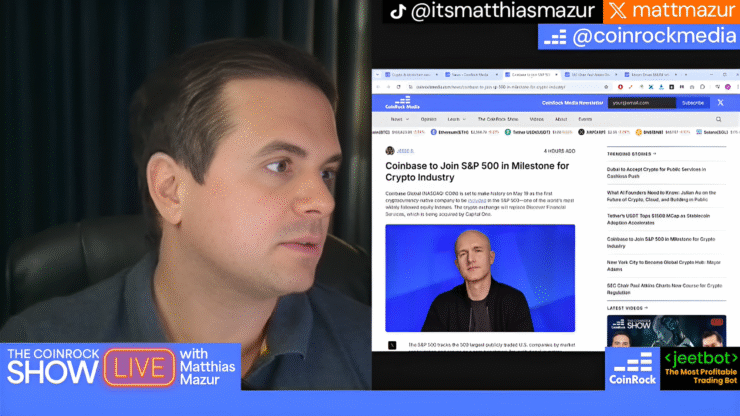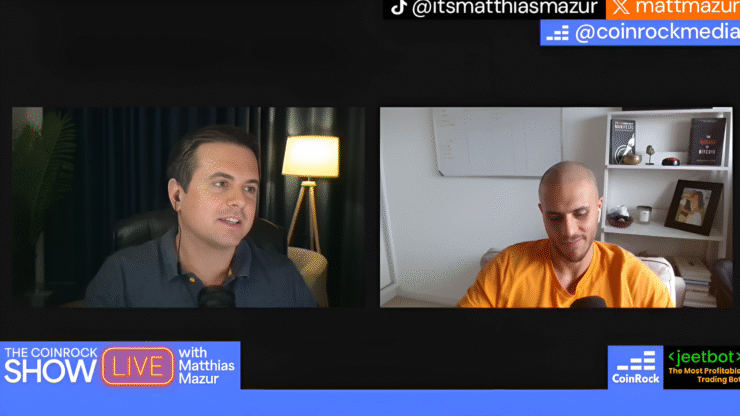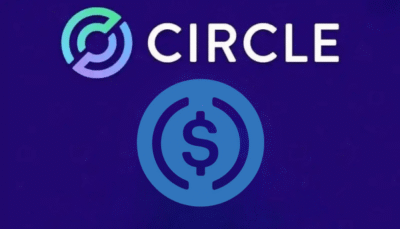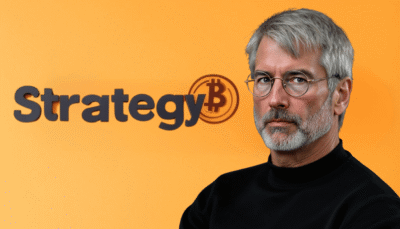This week’s CoinRock Show opened with Matthias‘ signature blend of bullish market commentary and off-the-cuff wit. “Price looking good. Number is up,” he said with a grin, noting how the crypto market’s pulse seems directly linked to the general sentiments.
“It might actually be one of the only markets that I’d say, is almost obsessed with price.” He teased.
“if the price goes down, everything crashes.”
Bitcoin crossed the $103,000 mark, and Ethereum surged past $2,500—renewing optimism after weeks of choppy sentiment. Matthias, long a vocal ETH bull, didn’t hold back on calling out the “doom-posters” who wrote ETH off just weeks ago.
More than just prices, the host highlighted shifting narratives in crypto—reminding listeners that price drives story, not the other way around.
“Narrative follows price. When ETH goes up, suddenly everyone remembers the Pectra update. Maybe it mattered, maybe not—but ETH was never going to die.”
He also touched on Coinbase’s inclusion in the S&P 500, calling it a watershed moment for crypto legitimacy in traditional finance.
“Whether you love Coinbase or hate them… This is very bullish for the industry. Coinbase joining the S&P 500. This is huge for the industry. This legitimizes crypto.”

With the scene set, Matthias teased the upcoming conversation with the day’s guest—a man whose views on Bitcoin, sovereignty, and personal legacy go far beyond speculation: Aleksandar Svetski.
Enter Svetski: Bitcoin as a Moral Mission
As the market discussion gave way to deeper reflections, Matthias welcomed the guest whose views extend far beyond blockchains and bullish candles. Enter Aleksandar Svetski — entrepreneur, writer, and unapologetic advocate for Bitcoin as a path toward personal sovereignty and civilizational renewal.
Matthias framed the conversation around a profound idea: legacy. “You build businesses, you make money, but ultimately it’s about what you leave for the next generation,” he said, teeing up a discussion that would quickly dive into Svetski’s philosophies on history, family, and the unraveling of tradition in modern life.
Svetski didn’t hold back.
“We’ve become ever more rootless,” he said.
“We function a little bit more like pot plants now… We lack the deep roots to not only the family lineage, but also to the land and to the people around us.”
For him, the disconnection from our ancestral and cultural roots isn’t just a personal tragedy — it’s a societal one. He believes the last century has been marked by a concerted effort to “brainwash civilization into thinking that tradition doesn’t matter.”
This framing isn’t abstract for Svetski. It directly informs how he thinks about Bitcoin — not merely as a tool for wealth, but as a vehicle for values.
“The last book that I just published was a very very deep historical look at culture and civilization and what we can do for the future in order to bring back the elements of tradition that make sense and intertwine that into what technological future looks like.”
But before going deeper into philosophy, Matthias gave Svetski the floor to share his backstory — one marked by dramatic wins, crushing losses, and a relentless drive to build.
“Most people know me from being an author,” he began, citing his years writing for Bitcoin Magazine, his bestselling co-authored book The Uncommunist Manifesto, and his appearances on major podcasts like Jordan Peterson’s and Alex Jones’. But writing, he stressed, came after a long entrepreneurial road.
From studying civil engineering to making — and losing — a fortune in the stock market, Svetski’s early twenties were anything but typical. “I ended up starting my 20s about a quarter of a million dollars in debt,” he recalled. “Back then, that was a lot.” The experience launched him into the world of gold and silver, and eventually into a string of startups — from sales and solar energy companies to cafés and recruitment platforms. By 23, he’d made his first million. By 24, he was broke again.
Through this rollercoaster, Bitcoin kept appearing in his periphery. Like many hard money advocates, he initially dismissed it. “I was a gold and silver bug. I ignored Bitcoin back then. I thought it was just internet funny money.”
That changed in the mid-2010s. After exiting his hospitality ventures, Svetski fell down the Bitcoin rabbit hole for real. He went on to build Amber, one of Australia’s most prominent Bitcoin apps, and later exited the company as political tensions grew around financial freedom and digital assets.
“I had some disagreements with how the government wanted to do things in that country,” he said — a statement that hints at the ideological motivations that now drive much of his work.
Today, Svetski is building again — this time focused on a global network for expats, nomads, and those he calls “sovereign individuals.” But as he explained throughout the episode, his mission isn’t just technological. It’s moral, civilizational, and generational. For Svetski, Bitcoin isn’t just the answer to fiat money — it’s a rebellion against the erosion of memory, identity, and autonomy.

Sovereignty Is a Feature, Not a Bug
Matthias ignited further discussions by asking how Svetski dealt with the two major collapses he experienced early in life. The response wasn’t just a war story — it was a reflection on how personal hardship forges the very trait he believes modern society lacks: fortitude.
“Most people give up at the first sign of pain,” Svetski said.
“What these experiences taught me is the visceral lesson of withstanding pain and continuing forward. That fortitude is very rare in the world.”
Svetski recounted how he built a fortune trading while still in his teens, only to lose it all in a single leveraged position just before the 2008 financial crisis. He didn’t just go broke — he went into debt, left university, and took the only job available to him at the time: door-to-door sales, commission only. An introvert by nature, he was forced to become the best salesperson just to survive. Then, after rebuilding his life and launching a successful solar company, he lost everything again — this time to broken government contracts and a collapsing business ecosystem.
Through both crashes, what emerged wasn’t bitterness or defeatism — it was a sharpened understanding of sovereignty.
“You can’t get strength from safety. You can’t get strength from comfort. You can’t get excellence from equality,” Svetski argued.
“In fact, equality is diametrically opposed to excellence.”
This wasn’t just theory. Svetski has lived the cost of false security, the illusion of fairness, and the price of trusting top-down systems. And to him, Bitcoin is not just a better financial instrument — it’s the antidote to a civilization-wide disease of dependency.
Bitcoin, in Svetski’s view, offers more than self-custody — it offers self-respect. It reintroduces skin in the game, responsibility, and discipline into a world that increasingly prioritizes comfort and convenience.
Matthias agreed, noting how the resilience of older generations — including elite athletes — is often lacking in younger cohorts today.
“If you put us in a 15-year-old body again, with our pain tolerance and mindset,” he said*, “we’d dominate.”* Svetski echoed this sentiment but added hope:
“But I’m noticing that there’s the younger generation, the newer generation seem to be showing a different resolve. At least I’ve noticed like some exceptional young people that I’m impressed by”
Ultimately, the argument was clear: Bitcoin isn’t just a hedge against inflation or a digital gold narrative. It’s a technology that demands responsibility — and that very demand is what makes it revolutionary.
This principle of decentralization extends far beyond finance. Svetski and Matthias further discussed the rise of CBDCs and state-controlled digital ecosystems, drawing a sharp contrast with Bitcoin’s bottom-up, voluntary ethos. Svetski championed a bifurcated digital future—one where sovereign individuals live on a decentralized stack built on Bitcoin and protocols like Nostr, while the rest remain embedded in surveillance capitalism. The choice, he warned, is dwindling: “Everyone has a choice right now. But when it becomes important, it’s too late.”
Legacy is Built Through Culture
The show wrapped with an exploration of legacy and the societal rot Svetski believes has taken root over the last century. He criticized modern culture’s abandonment of rites of passage, personal excellence, and multi-generational thinking. In a world where participation trophies have replaced merit, Bitcoin, he claimed, forces a rediscovery of delayed gratification and disciplined value.
His latest book, The Bushido of Bitcoin, argues that those who hold Bitcoin will eventually inherit significant power and wealth. The real question, Svetski posed, is whether they will have the character to wield it responsibly. The book delves into historical warrior codes like Bushido and Chivalry, reinterpreting them for a modern, post-fiat world.
“Civilization has a huge problem with money and money is the most important tool for human competition, cooperation and trade.”
Where to Find Aleksandar Svetski
- Website: Satlantis
- LinkedIn: Aleks Svetski
- Twitter: @SvetskiWrites
- Book: The Bushido of Bitcoin




